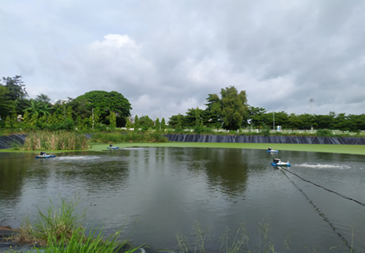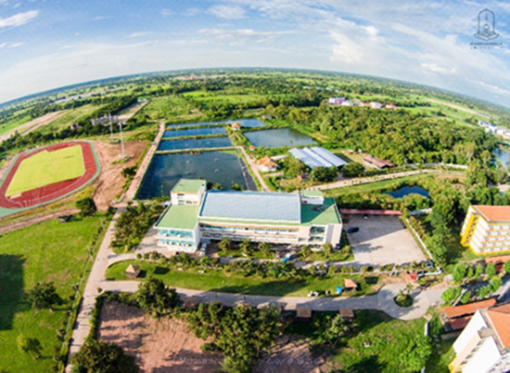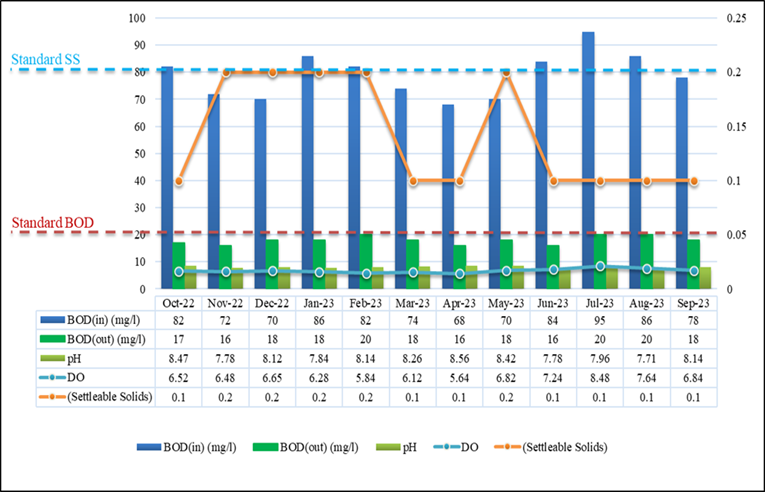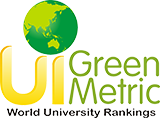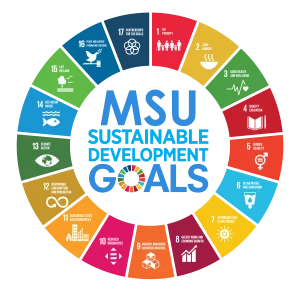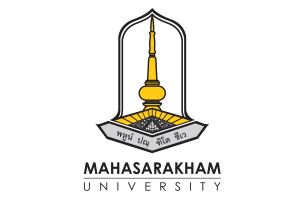WATER MANAGEMENT
Sustainable Development Goal 6 focuses on clean water and sanitation for all. It aims to ensure access to clean, safe drinking water and proper sanitation for everyone, everywhere by 2030. Key criteria include providing safe drinking water services to all, ensuring access to adequate and equitable sanitation and hygiene facilities, and achieving universal and equitable access to affordable and equitable sanitation and hygiene. Sustainable development in this context aims to create resilient and safe living environments for everyone at all ages and to ensure universal access to basic health services without discrimination. Sustainable development in water and sanitation is crucial to building a sustainable and inclusive world for everyone globally. It promotes achieving social and housing improvements for all, particularly in disadvantaged and high-risk communities, in accessing clean water and good health.

Support and strengthen the participation of local communities in improving water and sanitation management.

Announcement of Mandatory Water Conservation and Efficient Usage.

The water produced by this state-of-the-art water supply plant is intended for direct human consumption and other various uses. It is guaranteed to be 100% clean and treated tap water, obviating the need for utilizing untreated water sources such as groundwater.

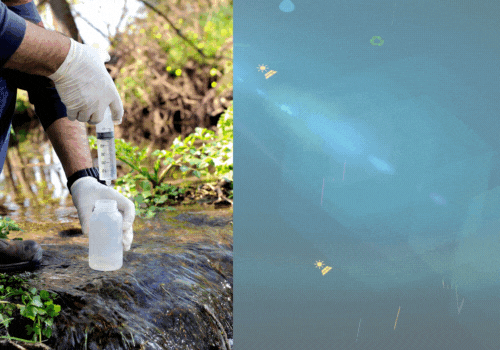
The announcement from Mahasarakham University, effective since 2021 and ongoing to the present, pertains to their water conservation and efficient usage policy.

Mahasarakham University has instituted a multifaceted water conservation system, commencing with the preservation of groundwater. This initiative involves the construction of water storage reservoirs and extensive canals surrounding the university’s premises. Furthermore, the university directly accesses surface water from the Chi River without necessitating groundwater extraction.
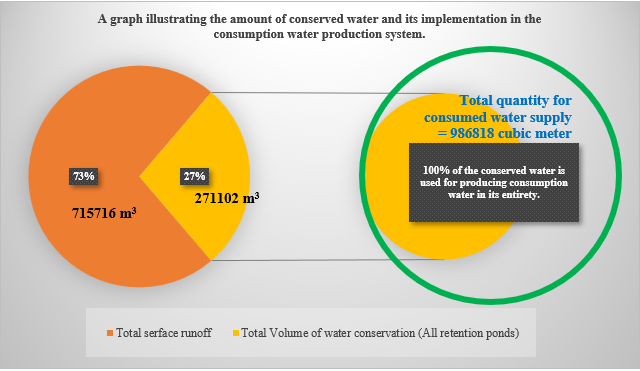
This system not only caters to the university’s water demands but also possesses the capability to manage rainwater runoff effectively, mitigating the risk of flooding. All these endeavors have been successfully executed and are presently in operation.


Upon utilization, water becomes wastewater, and Mahasarakham University has an in-house wastewater treatment system that is specifically engineered to efficiently eliminate impurities from the water, ensuring compliance with established quality standards. In addition to these measures, Mahasarakham University has adopted a comprehensive array of pollution prevention strategies to safeguard their wastewater and prevent contamination. These measures encompass the full implementation and consistent monitoring of policies and programs aimed at controlling water pollution.
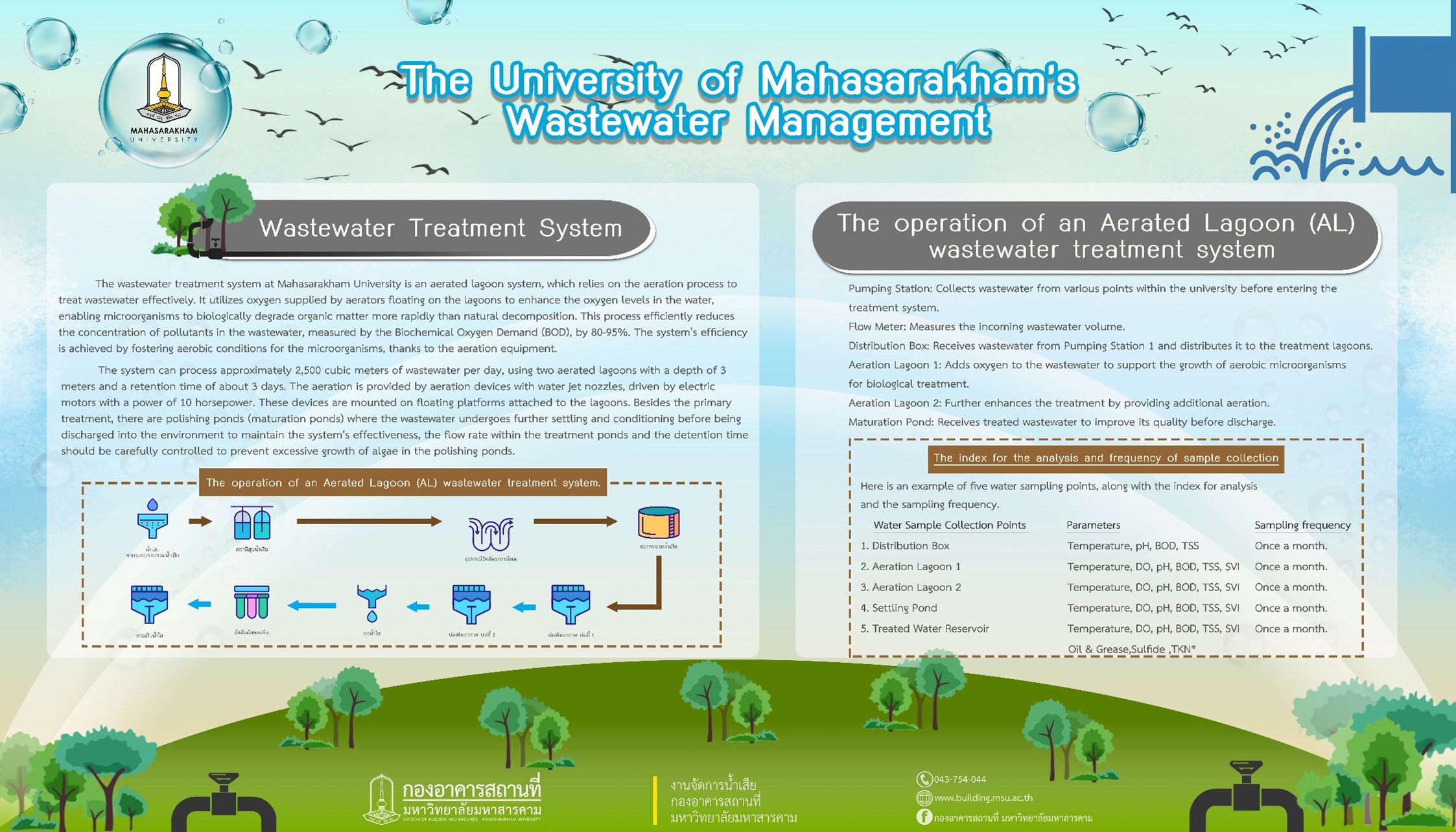
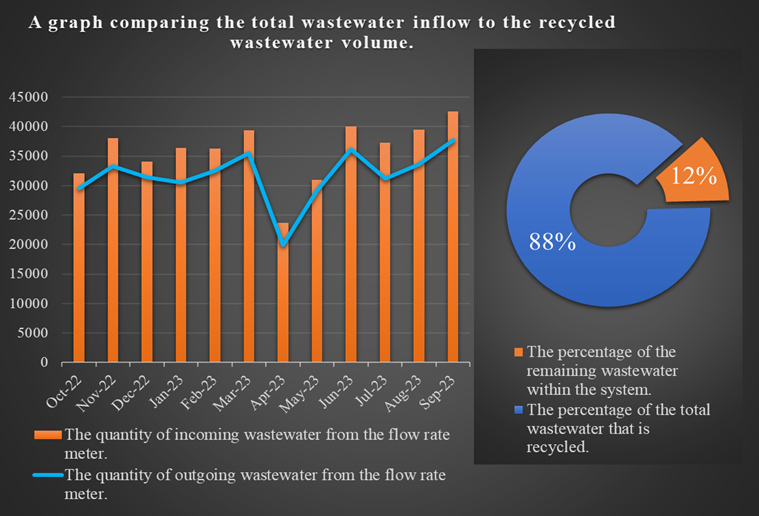
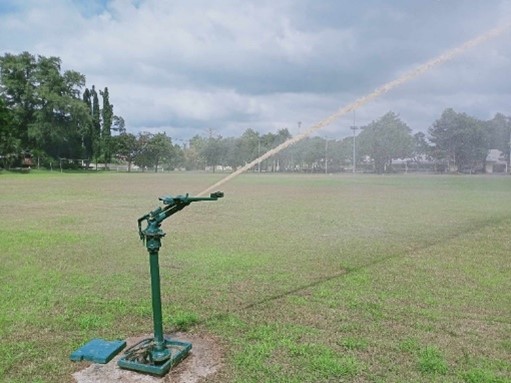
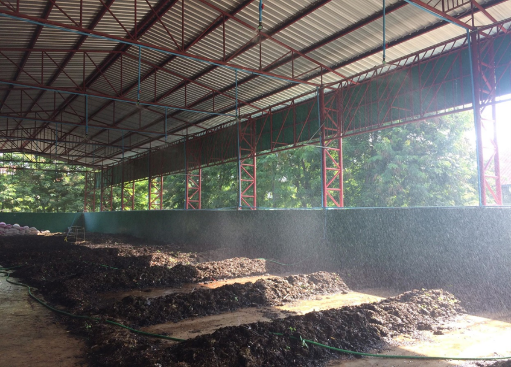
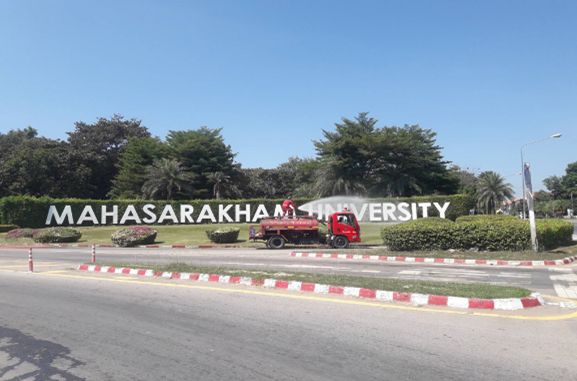
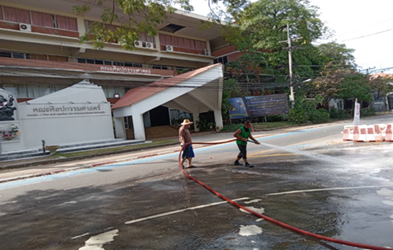
This treatment system employs an Aerated Lagoon, which can accommodate influent BOD levels of up to 200 mg/l. Furthermore, all treated water is recycled for internal use within the university premises (Zero Discharge), including purposes like irrigating green spaces, street cleaning, and compost production.
